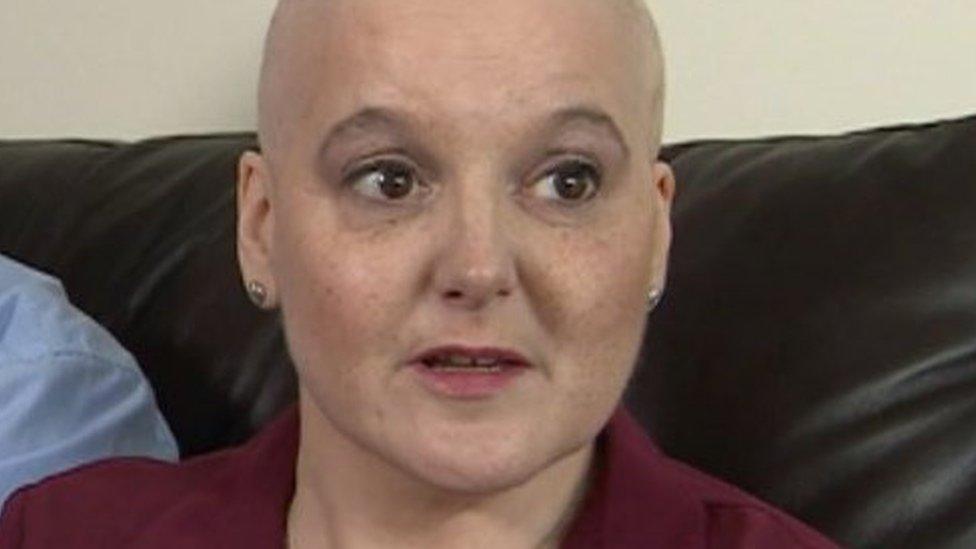Julie O'Connor inquest: Missed cancer diagnosis was 'gross failure'
- Published
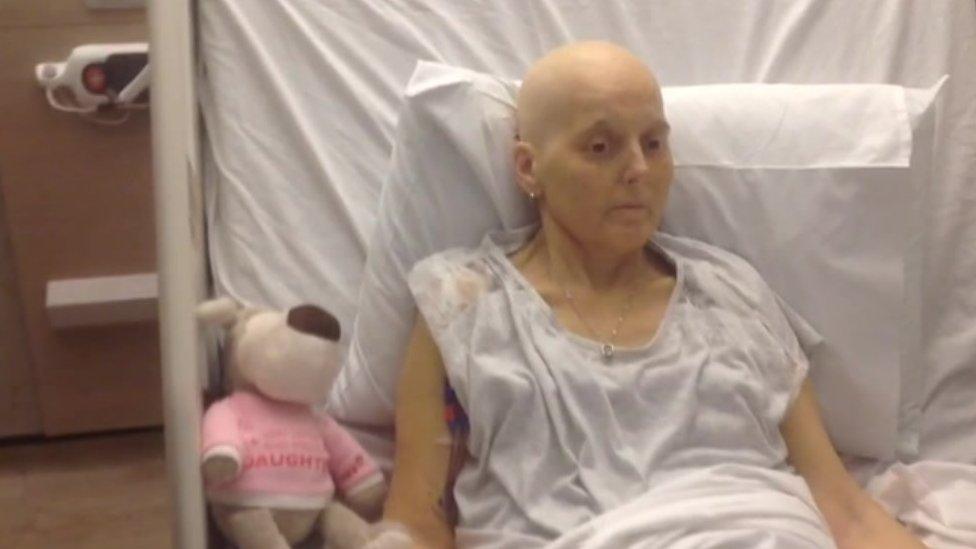
Julie O'Connor died from cervical cancer in February 2019
There were "gross failures" in the care of a nurse who died of cervical cancer, a coroner has concluded.
Julie O'Connor, from Thornbury, Gloucestershire, died in February last year after getting the all-clear from a smear test in 2014, and a later biopsy.
North Bristol NHS Trust accepted both the smear test and biopsy were wrong.
At her inquest at Flax Bourton, Avon Coroner Maria Voisin recorded a conclusion of "natural causes contributed to by neglect".
"I consider that based on the evidence I have heard the failure to report the smear test accurately was a gross failure and the further assessments in both August and November 2016 were also gross failures," Mrs Voisin said.
Speaking after the inquest her husband, Kevin O'Connor, said he hoped the verdict "would go a long way to help and protect other women in the future".
"Cervical screening does save lives, we want to ensure that we have a safe cervical screening and gynaecological service," he said.
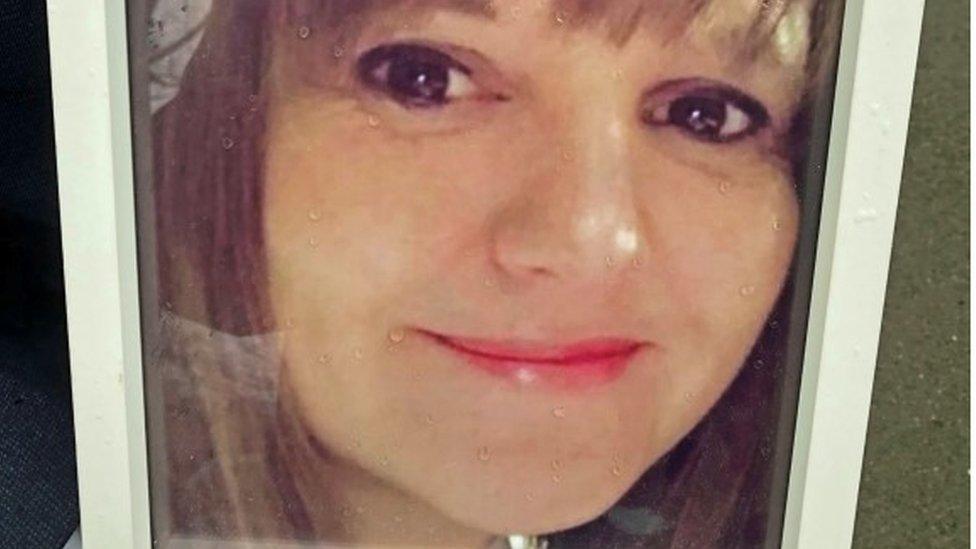
Mrs O'Connor was an intensive care nurse, a school nurse and also worked in the private sector
Mrs O'Connor, 49, had repeatedly seen her GP over 14 months and been referred to Southmead Hospital in Bristol, but the cancer was only diagnosed when she saw a private doctor in 2017, the inquest heard.
She was due to undergo further tests at Southmead the following month but decided to see a consultant at the Spire Hospital.
On examining Mrs O'Connor, they immediately suspected cervical cancer, which was later confirmed.
Further tests showed signs her cancer had spread and she underwent chemotherapy and radiotherapy.
She died in a hospice less than 12 months after the cancer was confirmed.
'Lessons learned'
An expert had told the inquest that if the cancer had been diagnosed earlier, Mrs O'Connor would have had surgery and a "good prognosis".
North Bristol NHS Trust deputy medical director Tim Whittlestone said the trust accepted the coroner's findings.
"Secondly I would like to reaffirm that North Bristol has investigated these errors and more importantly that we have learnt lessons from our mistakes," he said.
"Finally I would like to reassure patients that as a result of Julie we have improved the way we examine patients and diagnose cervical cancer."
- Published29 January 2020

- Published27 January 2020

- Published16 October 2019
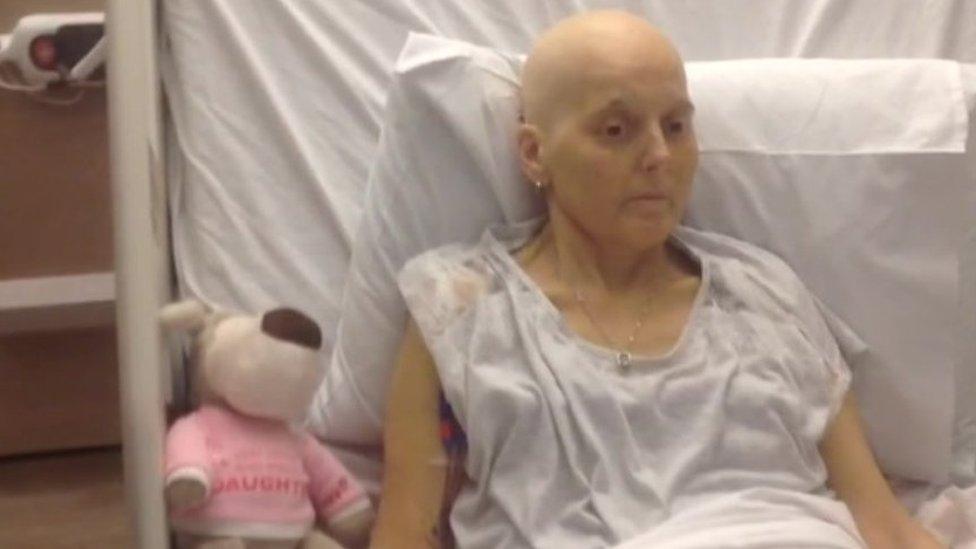
- Published12 February 2019
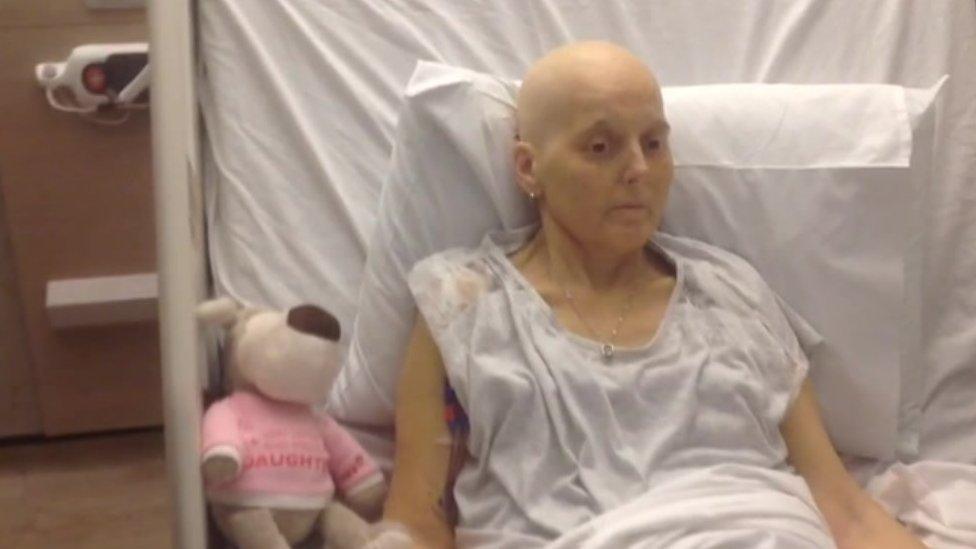
- Published12 February 2019
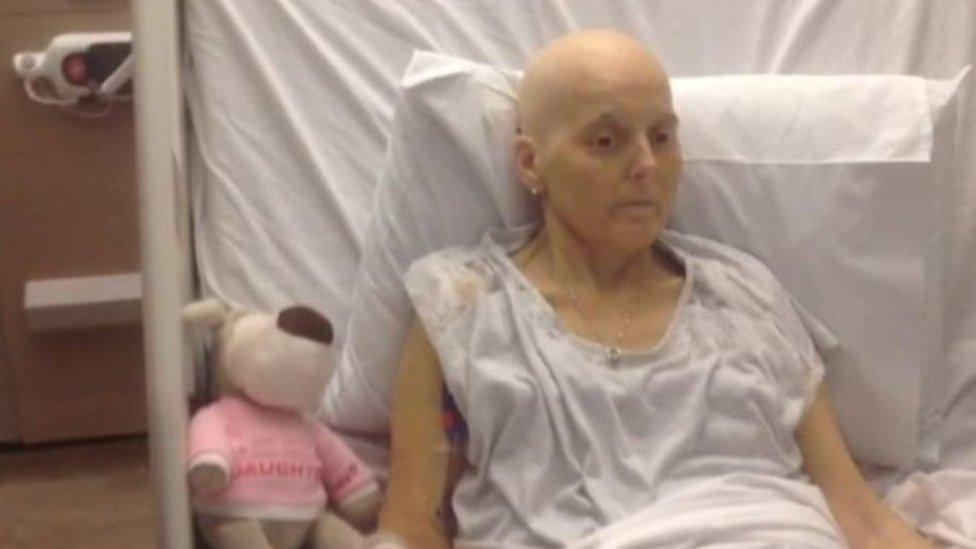
- Published3 April 2018
